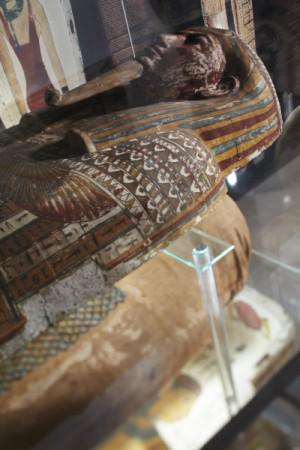
Anton Lavrin was one of the Hapsburg Empire’s most distinguished diplomats. For most people, that would have been a sufficient achievement, but Lavrin was also guided by an intense curiosity about the past. He became a leading researcher of Egyptian antiquities, and the legacy of his work is still on display in Slovenian museums.
Lavrin was born in 1789 to a wealthy family in the Slovenian town of Vipava. He obtained a law degree in Vienna and entered the Austrian diplomatic corps. He first served his country in several Italian cities, until he was eventually named Austria’s Consul General to Egypt.
By all accounts, Lavrin was a highly effective diplomat. He won acclaim as a peacemaker who helped to resolve local conflicts. As a passionate defender of the local Christian population, he even received a special commendation from the Pope for his work.
Lavrin’s posting in Egypt also allowed him to indulge his lifelong passion for ancient cultures. He traveled to various archeological sites and famously climbed the Great Pyramid of Giza. At the time, archeologists from around the world were active in Egypt – as were looters who were determined to make a quick profit from the treasures. Lavrin wrote about the latest discoveries, but he also sent back various artifacts to Austria. Among them were mummified heads of sacred bulls, which he sent to Archduke Ferdinand Maximilian.
Some of the artifacts were destined to the Archduke’s residence near Trieste, while others ended up in Vienna and Ljubljana. Lavrin donated more than 200 objects, including the mummy of Akesuita, to what is now the National Museum in Ljubljana. He didn’t just collect the artifacts; he also described and cataloged them, and most of his collections are still on public display.
Lavrin also sent three sarcophagi, which he bought from an antiques dealer, to his native Vipava. Two of them were eventually used to inter his parents; while the third, smaller sarcophagus ended up containing the body of his son Albert, who died when he was a child. The sarcophagi can still be seen in the family’s crypt in Vipava.
Lavrin, the man who exposed Central Europe to the riches of ancient Egypt, but also participated in the expropriation of some of the country’s most remarkable treasures, died in the Italian city of Milan in 1869. He was 80 years old.

































































